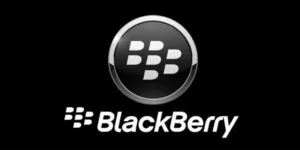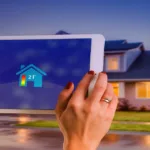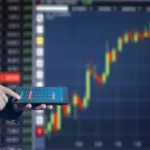This week I was at the New York Stock Exchange for an update from Blackberry and it struck me that one of the products they were showcasing, AtHoc, could have made the recent PG&E outage much less painful. What amazes me is that Facebook and other firms are capturing all this information on us, but they don’t seem that motivated to use it to help us. They could, using analytics, identify folks that were suicidal, homicidal, or just in need of a hug with increasing levels of accuracy and they could even let loved ones know of the problems but instead, they just seem focused on trying to get us to do things that aren’t in our best interest. The 2016 US election comes to mind.
Let’s talk about applying technology to make us all safer this week.
PG&E Outage
So, during the outage, I got a call from PG&E telling me that my house in San Jose was going to be without power for a week or more and that I’d need to figure out how to live without power for that time. They clearly wanted me to be safe, but I did have to point out that I’d sold that house 5 years earlier and now live in Oregon where we have a power company that doesn’t proactively drop us back to the Dark Ages.
It just struck me as odd that their data was so out of date they didn’t seem to realize I hadn’t paid a power bill in years and that they didn’t really need to waste time wondering whether I was OK given I wasn’t even in the State anymore.
Now Facebook, Google, and thousands of people on social media know where I live why wouldn’t a utility that is trying to do me a solid? Granted they were causing the problem in the first place but what if a transformer had exploded and they wanted to know if the person living in my old house was injured? Or, given my home is a solar home, they wanted me to pull the disconnect on the solar panels to make sure someone working on the lines didn’t get electrocuted? (My solar system was grid-tied and potentially could be a hazard to a lineman under certain conditions and calling me in Oregon isn’t going to mitigate this danger).
Minimizing A Disaster
Let’s take this idea farther, let’s say we have the big earthquake that I’m sure most folks in California are still expecting. How would the government know who was safe and who needed immediate help? We are all tracked by our phones, by our social media footprint, even by some of the navigation systems in our phones, tablets, and cars. These systems are designed to guide us to places where we would be likely to spend money but why not have a system that used some of this data and not only could guide us to safety but would alert our families and first responders in a way that would better assure our chance of survival?
We know we are going to have another major natural or unnatural disaster, be it a pissed-off mother nature or one of the pissed off Isis folks that were just released and likely will end up here. An ideal solution would be one you would opt into but that would not only be able to allow you to say you were safe, Facebook did step up there but help you get to safety and automatically issue that notification. (If I’m in the middle of a disaster unless I’m a millennial, I’m likely not going to make social media my first stop.).
Blackberry AtHoc
AtHoc is a program that was largely developed for the US military and then moved to the private sector because companies like to keep track of their employees during times of crisis. For the firms it isn’t just about giving a crap it is about making sure the firm remains viable and it may not if it loses a critical mass of employees and executives.
Set up properly AtHoc knows a variety of ways to contact you and assure you are safe. Even if you don’t have your cell phone you voluntarily put in information about alternative ways to contact you. (Which does kind of suggest those executives that have mistresses would have to make some difficult choices.)
During a crisis it not only identifies the employees who are out of the area and naturally safe, it initiates contact so that all employees can be located and assured. It also provides help in terms of guidance to safety for the individual users, allows those users to collaborate so that if an exit route is compromised others are routed differently, and forms a foundation for being able to analyze the event afterwards in order to improve response times and save more people.
Deployed say during a school shooting the students near the shooter would be advised to shelter in place and lock the doors, (assuming it was set up properly), and those who aren’t close to the shooter would be guided to evacuate in a direction that wouldn’t get them shot. Anyone seeing the shooter could update location and that would not only better assure the safety of others but more safely guide the police SWAT team to where the threat was located. I’m an ex-cop myself and running into a location where you don’t know where the shooter is a good way to get shot. Given none of us wants to get shot that certainly slows down response times.
AtHoc, according to BlackBerry, has been successfully used during terrorist attacks, during huge cyber attacks (allowing both critical systems to be shut down and users to be notified immediately of the outage), and during weather events to assure managers and employees had situational awareness and could better get to safety.
In short, it works and given it was designed and deployed widely across the US Military it works with Military precision.
Wrapping Up:
It seems odd to me that we collect this massive amount of data and instead of using it to make us all safer it is mostly used to manipulate us to buy what we otherwise won’t buy or vote for who we otherwise wouldn’t. Why don’t we make the penalty for misusing data the cost of implementing a system that used that data to keep us safer? I’d be willing to bet that if Facebook more aggressively acted like they cared whether we lived or died there wouldn’t be so much support for getting off the platform and breaking the company up.
Was I out looking for a job and had choices (which in this market lots of folks do) picking a company that invested in keeping me safe would be a priority? Maybe you should ask if your company has AtHoc or something like it and, if not, go someplace that makes your safety a higher priority particularly if you live in places like California where a catastrophe is likely.
In the end, I believe if companies harvesting our data spent just a bit more time keeping us safer there wouldn’t be as much interest in breaking them up. Just saying…








